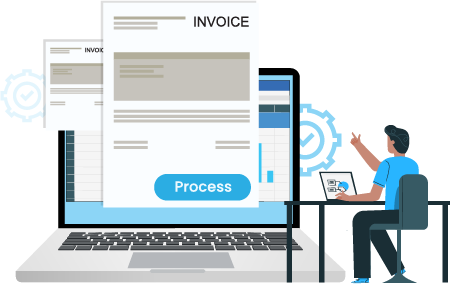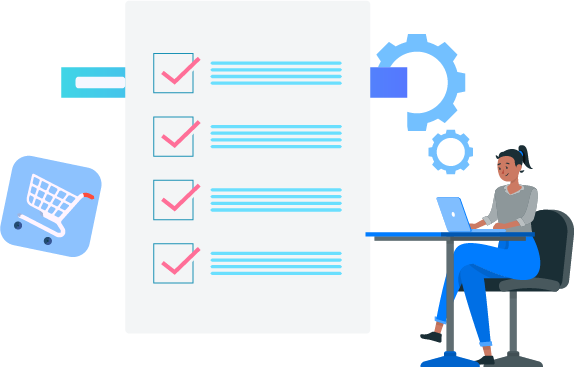A modern procure-to-pay (P2P) process should be accurate, efficient, and transparent.
However, many organisations still operate with fragmented systems, manual steps, and process gaps.
These weaknesses increase costs, reduce control, and create compliance risks.
Here are 9 critical gaps that often hold P2P processes back—and how UniFi P2P Enterprise Suite helps address them.
For context, UniFi P2P Enterprise Suite is a powerful suite of apps that can be used to manage and automate the entire purchasing process – from supplier onboarding, requisitioning, and purchase ordering to goods/services receipting and purchase invoice approval.
Critical Challenges in the Procurement Process
Here are the gaps and how UniFi fixes them:
1. Heavy Manual Invoice Handling
Manual data entry introduces delays, errors, and high processing costs. Staff time is wasted on repetitive tasks instead of value-added work.
The UniFi Response
UniFi P2P Enterprise Suite automates invoice capture, review, and approval, enabling straight-through processing of supplier invoices and reducing manual effort.
2. Slow Approvals and Long Cycle Times
Inefficient approval workflows extend P2P cycle times and delay payments. These delays increase the risk of missed discounts and supplier dissatisfaction.
The UniFi Response
UniFi’s Purchase Invoice Approval app provides automated, rule-based workflows that accelerate approvals and give full visibility of approval status.
3. Poor End-to-End Visibility
Lack of transparency across the P2P process leads to weak financial control and poor decision-making. Without visibility, the finance team cannot manage finance and accounting operations effectively.
The UniFi Response
UniFi P2P Enterprise Suite centralises purchasing, invoice, and payment data with real-time dashboards and reporting to improve process visibility.

4. Silos and System Fragmentation
Disconnected procurement, finance, and ERP systems lead to process gaps, data duplication, and reporting delays.
The UniFi Response
UniFi integrates core systems to ensure a connected, end-to-end P2P process through a single source of truth.
5. Maverick (Off-Contract) Spend
Off-contract purchases bypass negotiated terms, inflate costs, and introduce compliance risks.
The UniFi Response
UniFi enforces purchasing policies, with guided buying and approval controls that drive spend through preferred suppliers.
6. Supplier-Onboarding Friction and Queries
Manual onboarding creates delays and leads to incomplete supplier data. Without clear communication, supplier queries increase.
The UniFi Response
UniFi automates and simplifies supplier onboarding with the Supplier Onboarding app, reducing friction and query volumes.
7. Regulatory and Compliance Burden
Manual processes increase the risk of errors and non-compliance with financial regulations.
The UniFi Response
UniFi maintains complete audit trails. From regulatory compliance to corporate governance, UniFi helps you meet your compliance obligations and protects your organisation from risk.
8. Fraud, Duplicate or Erroneous Payments
Weak controls and poor visibility allow fraudulent, duplicate, or erroneous payments to slip through.
The UniFi Response
UniFi applies automated checks for duplicates and anomalies, with full auditability of every transaction.
9. Weak Data Quality
Poor supplier and purchasing data leads to errors, process inefficiencies, and compliance risks.
The UniFi Response
UniFi P2P Enterprise Suite supports integration with web-based shopping cart platforms. Through API connections, it can pull in live product data from your preferred vendors.
Wrapping Up
These 9 procurement challenges represent common weaknesses in many P2P processes. Each contributes to higher costs, lower efficiency, and increased risk.
Addressing them brings measurable improvements in procurement and financial operations.
UniFi P2P Enterprise Suite is designed to close these gaps, delivering a modern, automated, and connected P2P process.
Speak to us about closing your P2P gaps with UniFi or see the full demo now!





